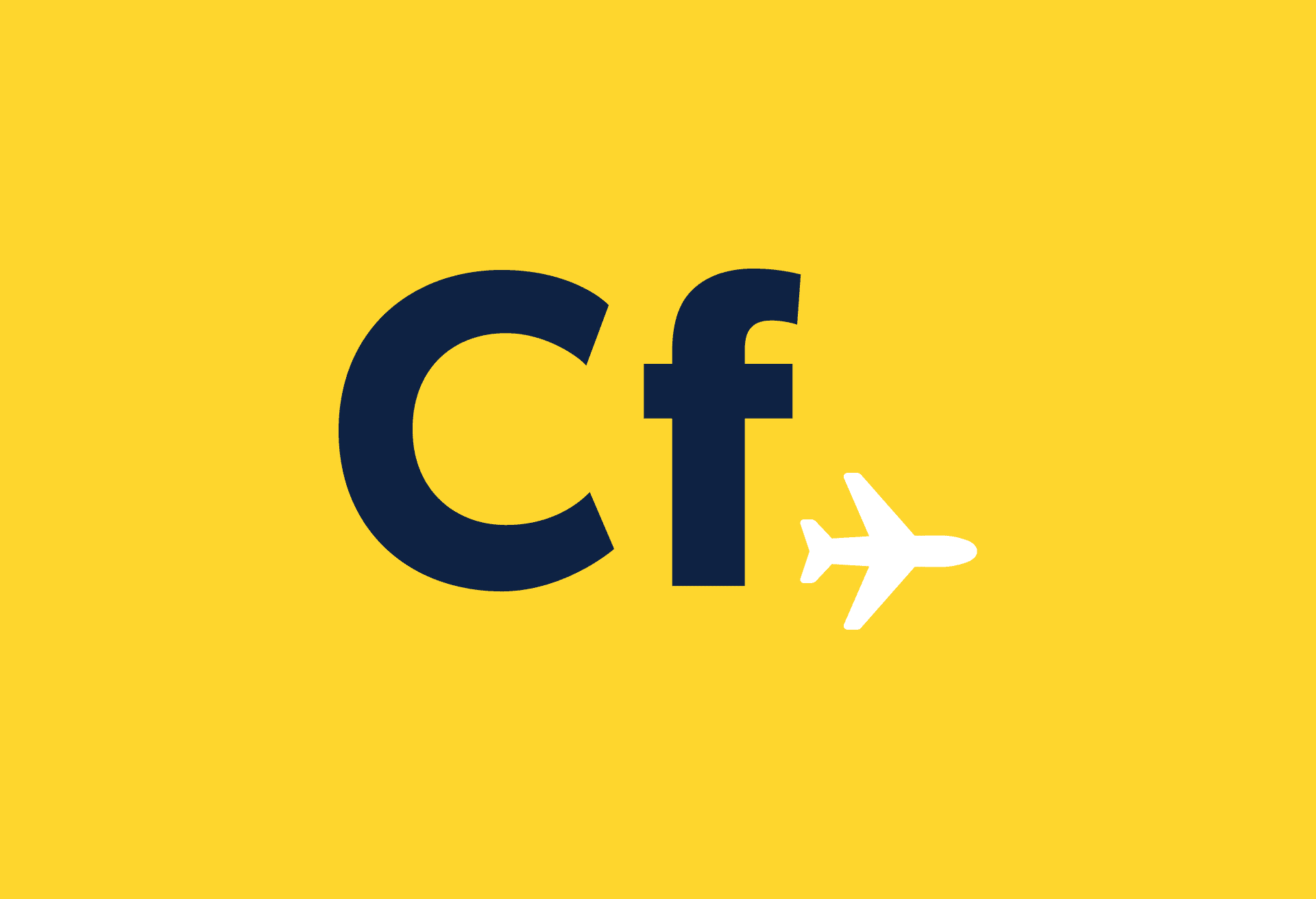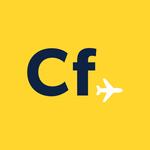An expert flier, Darren Booth spends the majority of his free time finding the best deals, planning adventures, and flying more than 100,000 miles per year just for the fun of it. He loves nothing more than to be at an airport, visit its lounges, board a plane, gaze out the window, and check into a hotel upon arrival. And to rack up the mileage and points, of course. To chronicle it all, Booth writes Frequently Flying, a blog about air travel and the airline industry.
Cheapflights: You fly over 100,000 miles a year “for the fun of it.” How would you explain this to a traveler who flies just a few times a year?
Darren Booth: First it’s important to know that traveling has always been a major passion in my life – from car trips with my family as a child staying in hotels to flying quick roundtrips on my days off in high school. I happily admit I’m an airline and travel geek.
Given the amount I fly, I hold elite status with American and United, so my experiences at the airport and onboard are different than that of the occasional flier. In addition to priority check-in, security screening and boarding, I often receive complimentary upgrades to First Class, so traveling these days is pretty effortless and “fun.”
Also, I get an enormous amount of joy and peace simply by gazing out the window when flying. The world is beautiful from above and there is always something new to see, no matter how many times I’ve flown the same route.
CF: As someone who spends a lot of time finding the best deals, what shareable tips do you have?
DB: The most important tip is to be flexible. Before requesting hard dates for time off work, start pricing out the trip you want to take. It might be more economical to begin a vacation on a Wednesday, for example, so do your research first.
Planning in advance often gets you the best deals, but airlines usually only put sale fares out for the upcoming 90-day period. You might pay more if you book, say, six months in advance than you would two months out. Also, shop for airfares mid-week. Sale fares most frequently pop up on Tuesdays, Wednesdays and Thursdays, and generally expire on Fridays.
On the hotel front, if you booked a regular rate that allows for cancellations, keep checking back as prices could possibly have dropped since you booked it. If so, make a new reservation at the better rate and then cancel the first one. Also, consider buying a package deal where the air, hotel and car are included in one price. Cheapflights offers these combos, as well as the vacation branches of the major carriers and other wholesale “tour operators” such as Apple Vacations, Funjet Vacations and Pleasant Holidays, who also arrange popular tours at your destination.
CF: Can you explain how people can use airline miles to maximize the economics of flying and get the most out of their travels?
DB: I treat airline miles like currency. The more you rack up, the more you’re able to redeem them on luxurious flight experiences you likely would never be able to afford in cash.
My latest redemption was for a First Class trip to Hong Kong on Cathay Pacific. The retail price for such a ticket exceeds $15,000 and instead, I spent 135,000 miles that cost me about $1,500 to accrue. Through a combination of credit card sign-up bonuses, hotel point transfers, flying and the related bonuses as being an elite member, I was able to travel in style for the price of a coach ticket.
The goal in my mind is to accrue enough miles for a premium cabin redemption. Spending miles on coach usually doesn’t make sense unless you have a last-minute emergency travel need for which the ticket price is exorbitantly high.
The excitement of having enough miles for a free domestic coach ticket is appealing, but always think bigger. A luxurious premium cabin experience really isn’t that much further away.
CF: What is an absolute must on your packing list, and are there any items that you’ve learned you can deal without?
DB: I always have my own onboard version of an airline’s premium cabin amenity kit in my carry-on bag, especially for long-haul flights. It contains a toothbrush, toothpaste, mouthwash, hand sanitizer, hand lotion, wet wipes, shampoo, deodorant and if you’re a man, a razor and shaving cream. All of which are under the 3.4-ounce TSA carry-on liquid requirement (except the deodorant since it’s “solid”).
If your flight cancels and you don’t have access to your luggage, these essential items will help keep you refreshed if you happen to be stranded somewhere. The wet wipes are ideal if you decide to sleep in an airport overnight and don’t have access to a shower.
So long as I have my amenity kit, I can do without just about anything else. It’s not comfortable to wear the same clothes a second day, but if you feel semi-refreshed, it makes all the difference in the world.
CF: What’s your routine before you fly?
DB: Oh boy, do I have a routine. Let’s say my flight is at 6am the next day. The day prior I drink a huge amount of water, more than normal, to fully hydrate my body. I look forward to the higher-humidity Boeing 787s, but until then, traveling by air is incredibly dehydrating. If you drink enough water in advance, the effects of dry cabin air will be minimal.
I always set two alarms: My regular bedside alarm clock and my phone. If the power goes out overnight, your phone will be a savior.
I also always assume traffic will be terrible, so leave my house with time budgeted for backups. It might be annoying for some people to be at the airport too early, but I geek out on plane-spotting and have airline lounge access, so don’t mind if I have extra time to kill.
At the airport and after I check in (if I haven’t already done so online), I step aside before entering the security line. I remove everything from my pockets, put my belt in my carry-on, pull out my identification and boarding pass and then enter the queue. It makes for an efficient and expeditious security experience.
CF: How do you recommend anxious travelers stretch their comfort zone?
DB: When flying, show up really early at the airport and if connections are involved, build in more than the typical minimum 45 minutes airlines require. Try a two-hour connection to allot time for delays and you’ll be incredibly relieved if your first flight experiences a delay.
If things go awry, yes it’s stressful, but try to keep a positive attitude. If you’re in a long line to be rebooked on alternate flights, call the airline at the same time to seek out your options. If you get through on the phone first and arrange flights, it still might pay off to remain in line for hotel and meal credit vouchers.
CF: How has air travel changed since you started traveling? Has it changed for better or worse?
DB: Wow has it changed. When I first started flying, smoking was still allowed onboard, coach service domestically was the equivalent of First Class today and it was still fairly much a luxury to fly.
Flying has become a basic commodity for everyone. That’s not a bad thing, of course, but air travel today – especially since Sept. 11 – has become very stressful and the mainstream media covers any out-of-the-ordinary event as if it were a terrorist attack.
Air travel to me remains very special. It’s not just a means to an end, but an adventure of its own. I think too many people overlook the exceptionality of what it provides. The ease of which we go from point to point in a minimal amount of time is incredible.
I observe the behavior of fellow passengers in the cabin. Most people are immersed in their technology, their business, their papers, and I’m amazed at how few actually enjoy the experience. I know I’m a different breed of traveler given my passion for it, but I feel more people should savor the experience of the journey.
CF: How do you discover local or off-the-beaten-path places?
DB: Google is your best friend here. Don’t rely on the first couple of search pages and instead keep going and find something unique to do. I do admit I review the TripAdvisor recommendations, but once you’re at your destination, ask the concierge at your hotel. They often have suggestions you might not find on the Internet. Also, don’t be afraid to ask locals. Depending on where you are, you might discover something no one else has reviewed.
CF: What countries or regions do you believe offer the best bang for your buck?
DB: Australia used to be a fantastic value, but our dollars are basically at parity now and prices there are higher in relative terms. Many of the Asian countries remain a fantastic value such as Indonesia, Malaysia and Thailand.
Cheapflights is proud to have guest voices express their opinions. The views expressed are the author’s own and do not necessarily reflect those of Cheapflights Media (USA) Inc.



